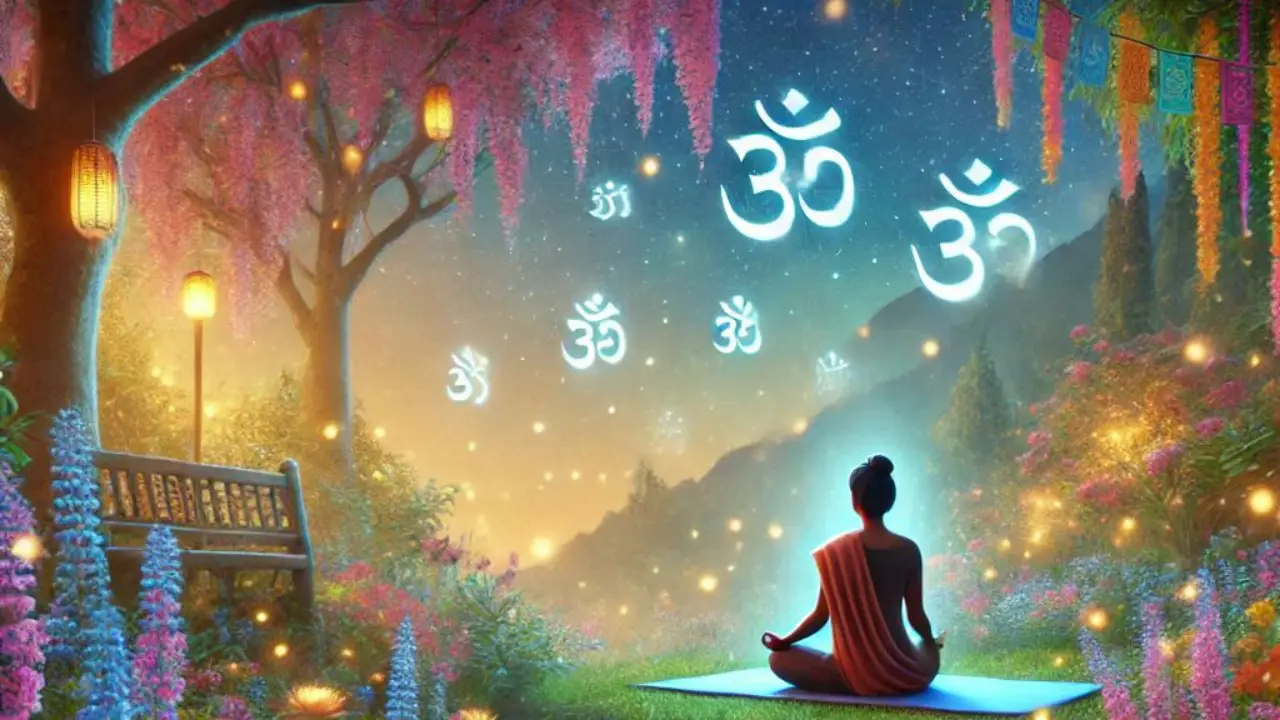Mantras hold a special place in Hinduism, offering a powerful way to connect with the divine, focus the mind, and enhance spiritual growth. These sacred utterances or sounds are not just religious tools; they are also practical for self-improvement and mental peace. Let us dive into the different types of mantras, understand them, and learn how they can enrich daily life.
What Are Mantras?
A mantra is a sacred sound, word, or phrase repeated to invoke spiritual energy or focus the mind. The term comes from the Sanskrit words “manas” (mind) and “tra” (tool), meaning a tool for the mind. These different types of mantras are deeply rooted in Hindu traditions but are widely practiced across cultures for meditation and personal growth.
Mantras work on the principle of vibration. Chanting a mantra creates positive energy, clears mental clutter, and aligns one with spiritual frequencies. Each mantra has its specific purpose, sound vibration, and spiritual significance.
The Different Types of Mantras
Mantras can be categorized based on their purpose, usage, and the deity or energy they invoke. Understanding these different types of mantras can help you select the mantra that aligns with your intentions.
1. Shanti Mantras (Peace Mantras)
Shanti mantras aim to bring peace and harmony. They are often recited before and after religious ceremonies or meditation sessions to calm the mind and environment.
Example: The Shanti Path, starting with “Om Sahana Vavatu,” is a well-known peace mantra. It prays for mutual understanding and freedom from obstacles.
Usage Tip: Chant this mantra daily in the morning to set a peaceful tone for your day.
2. Beej Mantras (Seed Mantras)
Beej mantras are powerful single-syllable sounds representing specific deities or energies. They act as seeds of divine energy and are often the foundation of longer mantras.
Example: The sound “Om” is the most famous beej mantra, symbolizing the universe and ultimate reality. Other examples include “Shreem” (for Lakshmi) and “Kreem” (for Kali).
Life Application: Use beej mantras to focus your meditation. Chanting “Om” can center your thoughts and connect you with universal energy.
3. Gayatri Mantras
The Gayatri mantra is one of the oldest and most revered mantras in Hinduism. It is a universal prayer for wisdom, guidance, and spiritual enlightenment.
Example: The Gayatri mantra is dedicated to Savitr, the sun deity:
“Om Bhur Bhuvah Svah Tat Savitur Varenyam Bhargo Devasya Dhimahi Dhiyo Yonah Prachodayat”
Daily Practice: Recite this mantra during sunrise to absorb positive energy and clarity for the day ahead.
4. Bhakti Mantras (Devotional Mantras)
Bhakti mantras are chants dedicated to a specific deity, expressing devotion and love. They are widely used in bhajans and pujas.
Example: The “Hare Krishna” mantra, also known as the Maha Mantra:
“Hare Krishna Hare Krishna Krishna Krishna Hare Hare Hare Rama Hare Rama Rama Rama Hare Hare”
Story: A devotee once shared how chanting the Hare Krishna mantra helped him overcome anxiety. It served as a reminder of divine protection and strength.
5. Healing Mantras
These mantras are designed to promote physical and mental healing. They are often combined with specific breathing techniques or meditation practices.
Example: The Mahamrityunjaya Mantra “Om Tryambakam Yajamahe Sugandhim Pushtivardhanam Urvarukamiva Bandhanan Mrityor Mukshiya Maamritat”. This chant seeks protection and healing energy from Lord Shiva.
Practical Tip: Chant this mantra during tough times to invoke strength and resilience.
6. Tantric Mantras
Tantric mantras are esoteric and often used in advanced spiritual practices. They require proper guidance from a guru to unlock their full potential.
Example: The “Om Aim Hreem Kleem Chamundaye Vichche” mantra is a powerful tantric chant for protection and wisdom.
Caution: Avoid experimenting with tantric mantras without proper initiation. They require discipline and understanding.
How to Chant Mantras Effectively
Chanting these different types of mantras involves more than just saying the words. Follow these tips to make your practice meaningful:
Set an Intention: Be clear about your purpose for chanting. Whether for peace, healing, or devotion, focus on your goal.
Create a Sacred Space: Find a quiet and clean place for chanting. Light a diya or incense to enhance the atmosphere.
Use a Mala: A mala (rosary) with 108 beads can help you keep track of your recitations.
Focus on Pronunciation: Correct pronunciation enhances the vibration and effectiveness of the mantra.
Practice Daily: Consistency is key. Regular chanting deepens the spiritual connection and amplifies benefits.
Impact of Mantras
Ravi, a young professional, struggled with stress at work. On his friend’s suggestion, he started chanting the Mahamrityunjaya mantra every morning. Within weeks, he noticed a calmer mind and better focus.
Similarly, a homemaker shared how the Gayatri mantra helped her navigate challenging family situations with clarity and patience.
These stories highlight how different types of mantras can transform daily life, offering strength, peace, and spiritual growth.
Why Mantras Are Relevant Today
In the modern world, distractions are endless, and peace feels elusive. Mantras act as anchors, providing a moment of calm amid chaos. They remind us of our spiritual roots and offer tools to navigate life’s challenges.
Start Your Mantra Journey
Mantras are not just sounds; they are gateways to spiritual and personal growth. Whether you seek peace, healing, or enlightenment, there’s a mantra for you.
Choose a mantra that resonates with your intentions. Practice it consistently, and observe the positive changes in your life. Share your experiences below—your journey might inspire others to explore this timeless practice.

